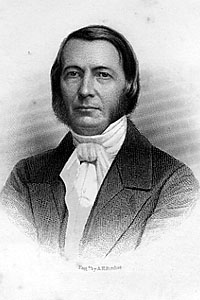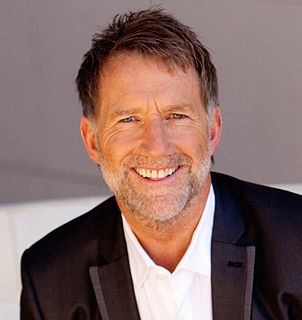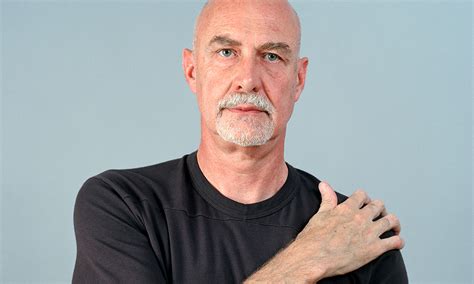Top 561 Imperative Quotes & Sayings - Page 10
Explore popular Imperative quotes.
Last updated on November 24, 2024.
To this day, we see all around us the Promethean drive to omnipotence through technology and to omniscience through science. The effecting of all things possible and the knowledge of all causes are the respective primary imperatives of technology and of science. But the motivating imperative of society continues to be the very different one of its physical and spiritual survival. It is now far less obvious than it was in Francis Bacon's world how to bring the three imperatives into harmony, and how to bring all three together to bear on problems where they superpose.
Let me end with an explanation of why I believe the move into space to be a human imperative. It seems to me obvious in too many ways to need listing that we cannot much longer depend upon our planet's relatively fragile ecosystem to handle the realities of the human tomorrow. Unless we turn human growth and energy toward the challenges and promises of space, our only other choice may be the awful risk, currently demonstrable, of stumbling into a cycle of fratricide and regression which could end all chances of our evolving further or of even surviving.
Whether young or old, rich or poor, learned or unlearned, should presume to dispense the mysteries of Christ without the strongest of all possible reasons for doing so - the imperative, invincible call of God. No one is to show cause why he ought not to be a Minister: he is to show cause why he should be a Minister. His call to the sacred profession is not the absence of a call to any other pursuit; it is direct, immediate, powerful, to this very department of labour. He is not here because he can be nowhere else, but he is nowhere else because he must be here.
It is imperative to exercise over big business a control and supervision which is unnecessary as regards small business. All business must be conducted under the law, and all business men, big or little, must act justly. But a wicked big interest is necessarily more dangerous to the community than a wicked little interest. 'Big business' in the past has been responsible for much of the special privilege which must be unsparingly cut out of our national life.
History leaves no doubt that among of the most regrettable crimes committed by human beings have been committed by those human beings who thought of themselves as civilized. What, we must ask, does our civilization possess that is worth defending? One thing worth defending, I suggest, is the imperative to imagine the lives of beings who are not ourselves and are not like ourselves: animals, plants, gods, spirits, people of other countries, other races, people of the other sex, places and enemies.
I believe in the pursuit of happiness. Not its attainment, nor its final definition, but its pursuit. I believe in the journey, not the arrival; in conversation, not monologues; in multiple questions rather than any single answer. I believe in the struggle to remake ourselves and challenge each other in the spirit of eternal forgiveness, in the awareness that none of us knows for sure what happiness truly is, but each of us knows the imperative to keep searching. I believe in the possibility of surprising joy, of serenity through pain, of homecoming through exile.
Thomas Berry calls the Ecozoic Era, a time when we recognize the imperative of caring for the planet as a means of compassionate survival. We do not know what the outcome is going to be, but we have an opportunity to make these kinds of creative and imaginative leaps of thought and actions both locally and globally. This is completely antithetical to the direction George W. Bush is leading this nation. I do trust that the open space of democracy is ultimately the open space of our hearts and that we can follow our own leadership that carries a long-term view way beyond "four more years."
Early on, I learnt from the Russian intelligentsia that the only meaning of life lies in conscious participation in the making of history. The more I think of that, the more deeply true it seems to be. It follows that one must range oneself actively against everything that diminishes man, and involve oneself in all struggles which tend to liberate and enlarge him. This categorical imperative is by no way lessened by the fact that such an involvement is inevitably soiled by error: it is a worse error merely to live for oneself, caught within traditions which are soiled by inhumanity.
But all the while, there was one thing we most needed even from the start, and certainly will need from here on out into the New Jerusalem: the ability to take our freedom seriously and act on it, to live not in fear of mistakes but in the knowledge that no mistake can hold a candle to the love that draws us home. My repentance, accordingly, is not so much for my failings but for the two-bit attitude toward them by which I made them more sovereign than grace. Grace - the imperative to hear the music, not just listen for errors - makes all infirmities occasions of glory.
Freedom is only to be found where there is burden to be shouldered. In creative achievements this burden always represents an imperative and a need that weighs heavily upon man’s mood, so that he comes to be in a mood of melancholy. All creative action resides in a mood of melancholy, whether we are clearly aware of the fact or not, whether we speak at length about it or not. All creative action resides in a mood of melancholy, but this is not to say that everyone in a melancholy mood is creative.
In Matthew 16:19, Jesus said that He would give us the keys to the Kingdom. Faith is the major key that opens every door in the Kingdom. It is a master key. Therefore it is imperative that we understand the ways of faith. Because these keys are the ways of God the natural man cannot receive them. They are spiritually understood. They are foolishness to the natural man. When a gift of the Spirit operates. Then we are able to impart that gift to others and teach them how to function in it also.
The most basic task of any museum must be the protection of works of cultural significance entrusted to its care for the edification and pleasure of future generations. This imperative rightfully takes precedence over acquisition, interpretation, outreach, or any number of other activities now believed to be crucial to the survival of our great art repositories. Sometimes a museum gains its holdings with much strategic forethought, and at other times serendipitously, as when a long-coveted neighbor’s plot suddenly becomes available. Yet the moral responsibility remains the same.
When you are incubating new ideas, "Don't put all your eggs in one basket" is very good advice. But when you are seeking to transform your enterprise's portfolio by scaling a fledgling business to material size - say ten percent of total enterprise revenue - then it is imperative that you make that the singular focus of everyone in the enterprise for the two to three year period it is likely to require to reach its tipping point. Expecting to do two such scaling efforts in parallel is simply folly, yet that is what the "eggs/basket" idea is often used to justify.
It's imperative to realize that it is not necessary to try to get rid of fear in order to succeed. Rich and successful people have fear, rich and successful people have doubts, rich and successful people have worries. They just don't let these feelings stop them. Unsuccessful people have fears, doubts, and worries, then let those feelings stop them.
Darwinism undermined traditional morality and the value of human life. Then, evolutionary progress became the new moral imperative. This aided the advance of eugenics, which was overtly founded on Darwinian principles. Some eugenicists began advocating euthanasia and infanticide for the disabled. On a parallel track, some prominent Darwinists argued that human racial competition and war is part of the Darwinian struggle for existence. Hitler imbibed these social Darwinist ideas, blended in virulent anti-Semitism, and--there you have it: Holocaust
The necessary consequence of man's right to life is his right to self-defense. In a civilized society, force may be used only in retaliation and only against those who initiate its use. All the reasons which make the initiation of physical force an evil, make the retaliatory use of physical force a moral imperative. If some "pacifist" society renounced the retaliatory use of force, it would be left helplessly at the mercy of the first thug who decided to be immoral. Such a society would achieve the opposite of its intention: instead of abolishing evil, it would encourage and reward it.
Kantian ethical theory distinguishes three levels: First, that of a fundamental principle (the categorical imperative, formulated in three main ways in Kant's Groundwork); second, a set of duties, not deduced from but derived from this principle, by way of its interpretation or specification, its application to the general conditions of human life - which Kant does in the Doctrine of virtue, the second main part of the Metaphysics of Morals; and then finally an act of judgment, through which these duties are applied to particular cases.
To an ever greater extent out experience is governed by pictures, pictures in newspapers and magazines, on television and in the cinema. Next to these pictures firsthand experience begins to retreat, to seem more and more trivial. While it once seemed that pictures had the function of interpreting reality, it now seems they have usurped it. It therefore becomes imperative to understand the picture itself, not in order to uncover a lost reality, but to determine how a picture becomes a signifying structure of its own accord.
Every Christian should find for himself the imperative and incentive to become holy. If you live without struggle and without hope of becoming holy, then you are Christians only in name and not in essence. But without holiness, no one shall see the Lord, that is to say they will not attain eternal blessedness. It is a trustworthy saying that Jesus Christ came into the world to save sinners (I Tim. 1:15). But we deceive ourselves if we think that we are saved while remaining sinners. Christ saves those sinners by giving them the means to become saints.
We are on the brink of a new energy order. Over the next few decades, our reserves of oil will start to run out and it is imperative that governments in both producing and consuming nations prepare now for that time. We should not cling to crude down to the last drop – we should leave oil before it leaves us. That means new approaches must be found soon..... The really important thing is that even though we are not yet running out of oil, we are running out of time.
...We may encounter many defeats, but we must not be defeated. That sounds goody two-shoes, I know, but I believe that a diamond is the result of extreme pressure and time. Less time is crystal. Less than that is coal. Less than that is fossilized leaves. Less than that it's just plain dirt. In all my work, in the movies I write, the lyrics the poetry, the prose, the essays, I am saying that we may encounter many defeats - maybe it's imperative that we encounter the defeats - but we are much stronger than we appear to be and maybe much better than we allow ourselves to be.




















